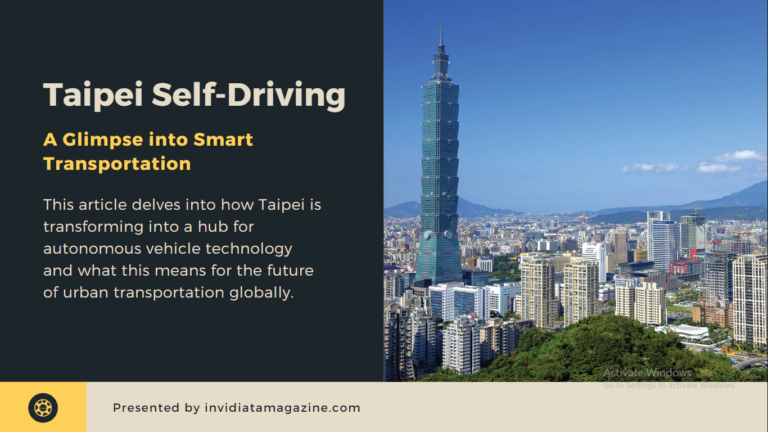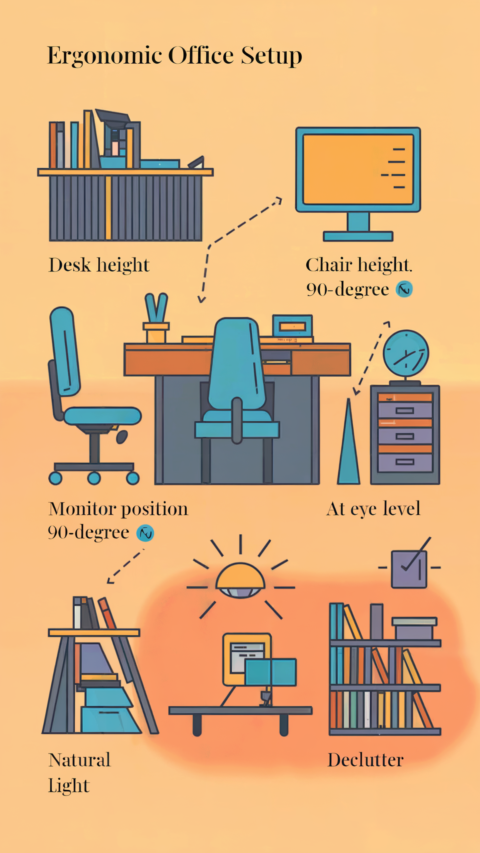The tapestry of modern urban mobility is being interwoven with groundbreaking threads, one of the most compelling being the development and implementation of autonomous vehicles or, as commonly known, self-driving cars. Taipei, the bustling capital city of Taiwan, is not just watching from the sidelines but actively participating in and sometimes leading this vehicular evolution. The journey towards realizing Taipei’s self-driving capabilities encapsulates a vision of a smart transportation network, merging tradition with futurism to enhance city living. This article delves into how Taipei is transforming into a hub for autonomous vehicle technology and what this means for the future of urban transportation globally.
The Pioneering Spirit
The foundation of Taipei’s journey into self-driving technology was laid down by a combination of governmental foresight, technological innovation, and a culture that embraces change. Understanding the potential impact of autonomous vehicles on the economy, society, and the environment, Taiwan’s government has been supportive, implementing policies and providing resources to foster development in this field. Local and international companies have found fertile ground in Taipei for testing and refining their technologies, propelled by this governmental backing. The city has become a microcosm of self-driving innovation, hosting trials and deploying pilot projects that aim to integrate autonomous vehicles seamlessly into the daily fabric of urban life.
Also Read: Taipei Self-Driving Gharry: A Comprehensive Breakdown
Infrastructure Integration
The progression towards Taipei’s self-driving excellence is not solely focused on vehicles but also on the city’s infrastructure. Smart infrastructure is vital for the efficient operation of autonomous vehicles. Taipei has been at the forefront of developing and deploying IoT (Internet of Things) devices, 5G networks, and smart traffic management systems to create an environment where self-driving vehicles can operate safely and efficiently. This infrastructure serves as the nervous system of the city’s transportation network, allowing vehicles to communicate with each other and traffic management systems to optimize flow and enhance safety.
The Human Aspect
One of the unique aspects of Taipei’s approach to integrating self-driving vehicles is its focus on the human element. While the technology is revolutionary, its adoption and effectiveness ultimately rely on human acceptance and interaction. Taipei has conducted numerous public engagement exercises, educational campaigns, and pilot programs that allow its citizens to experience autonomous vehicles firsthand. These initiatives aim to build trust, address concerns, and foster a sense of ownership and pride in the city’s technological advancements. Understanding that the success of Taipei’s self-driving ambitions is as much about people as it is about technology is a hallmark of Taipei’s strategy.
Safety and Sustainability
An unwavering commitment to safety and sustainability is at the heart of the push towards self-driving vehicles in Taipei. The potential of autonomous vehicles to reduce accidents attributed to human error and to optimize driving for fuel efficiency presents a compelling case for their adoption. Taipei’s administration and partners rigorously test and refine the technology to meet stringent safety standards before wide-scale public deployment. Concurrently, there is a recognition of the role self-driving cars can play in reducing carbon emissions, a critical factor as cities worldwide grapple with the challenges of climate change. Taipei is positioning itself as a leader in autonomous vehicle technology and a proponent of a greener, safer future.
Overcoming Challenges
The road to realizing Taipei’s self-driving ambitions is with its bumps. Technical challenges, regulatory hurdles, and the monumental task of integrating autonomous vehicles into the complex urban transportation ecosystem loom large. However, the collaborative approach taken by government bodies, technology companies, academia, and the public offers a blueprint for overcoming these challenges. Taipei is methodically navigating these obstacles by fostering an environment of innovation, encouraging open dialogue among stakeholders, and adopting a phased approach to deployment.
Looking Forward
The vision of Taipei self-driving is one of a seamless integration of autonomous vehicles into the city’s transportation fabric. This vision extends beyond personal cars to include public transport buses, taxis, and delivery vehicles, creating a comprehensive, efficient, and safe transportation system. The ongoing advancements in AI and machine learning and the refinement of sensor and communication technologies are accelerating Taipei toward this future.
As we stand on the cusp of this new era in transportation, the Taipei self-driving story offers invaluable insights into the possibilities and challenges of integrating autonomous vehicles into urban environments. It is a testament to the transformative power of technology, the importance of visionary policy-making, and the pivotal role of public engagement in shaping the future of cities.
The Taipei self-driving initiative is more than just an experiment in technology; it’s a commitment to creating a smarter, safer, and more sustainable future for all its citizens. As the world watches, Taipei sets the pace, showcasing what is possible when a city embraces innovation and works collectively towards a bold new vision of urban mobility.

Daniel J. Morgan is the founder of Invidiata Magazine, a premier publication showcasing luxury living, arts, and culture. With a passion for excellence, Daniel has established the magazine as a beacon of sophistication and refinement, captivating discerning audiences worldwide.





